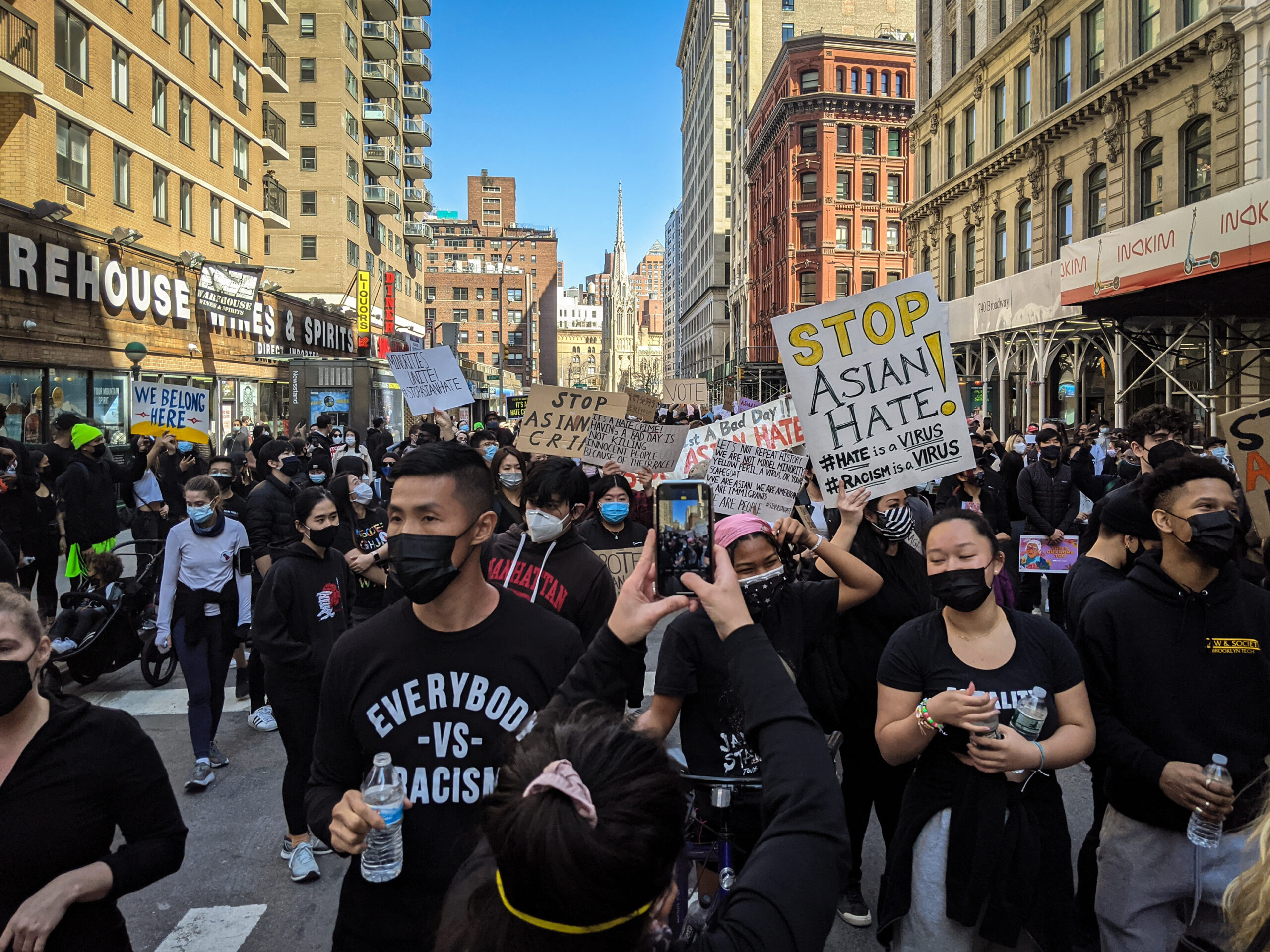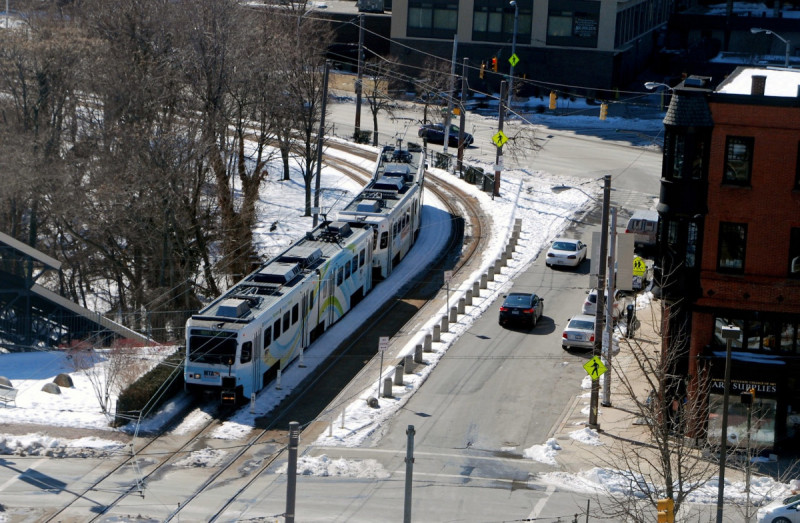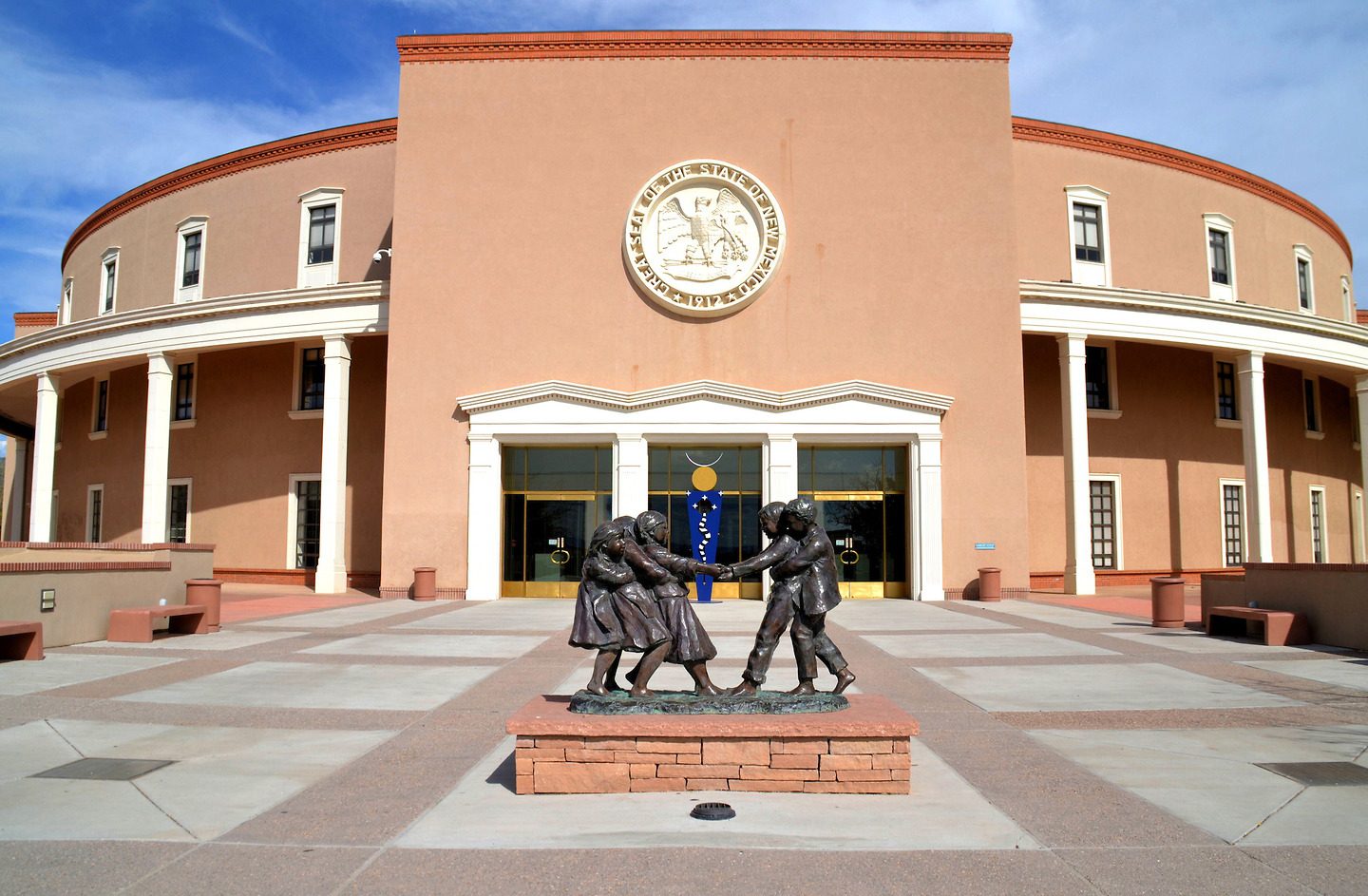Groups Fighting Anti-Asian Hate Still Waiting for Funding Albany Pledged in Spring

Six months after New York State passed a budget establishing a historic $10 million emergency fund to combat violence against Asian Americans, community organizations say they’re still waiting for the money.
The fund is the first to directly support Asian American/Pacific Islander communities in addressing hate crimes and racially based violence, amid a 356% spike in attacks on Asian New Yorkers in the city this year.
Without the money, groups are unequipped to roll out new programming and hire more staff to help victims of hate, advocates told THE CITY.
Over the spring and summer, a coalition of 18 city organizations representing AAPI communities repeatedly wrote to then-Gov. Andrew Cuomo and the state Legislature leaders asking where the funds were. They had first formed in March to advocate for the creation of the fund.
On Gov. Kathy Hochul’s first day in office last month, more than three dozen state lawmakers wrote to “respectfully request” the long-awaited funds and propose specific allocations.
“This proposal will help the AAPI community recover, heal, and grow stronger following a challenging year with a staggering uptick in hate crimes that specifically targeted Asian Americans,” the letter from the state legislators reads. “In the face of growing anti-Asian violence, our community’s recovery and healing must be rooted in the life-affirming community-based organizations that are often the only safety-net for so many Asian American New Yorkers.”
But more than two weeks after that latest missive, there’s still been no official answer from the governor’s office. After THE CITY inquired about the funds’ whereabouts, Hochul’s office disclosed Monday that $3.3 million would go to the Asian American Federation — a Manhattan group that is not part of the coalition.
“Combating hate crimes is a priority for Governor Hochul, and since the beginning of this administration we have been working to ensure funds promised to communities are being delivered,” said Bryan Lesswing, a Hochul spokesperson. “We are working on distributing the remaining funding with the Legislature as required by the appropriation.”
Jo-Ann Yoo, executive director of the Asian American Federation, said that her group had initially put in a $30 million request to the governor’s office for a Hope Against Hate initiative — to build out safety patrols and zones and expand in-language support for victims, among other measures.
Yoo said that her federation declined an invitation to join the coalition because “they went in a separate direction.”
“We pursued our own avenues to get the support that we need,” she said. “They pursue their avenue to get the support that they need. I don’t think it’s competing. I think it’s complementary.”
State Sen. John Liu (D-Queens) and Assemblymember Yuh-Line Niou (D-Manhattan), both signatories of the letter, said that there was broad agreement in the Legislature about the need to swiftly distribute the funds to community groups, in line with the coalition’s proposal.
The budget language does not establish who the money should be allocated to, or how, beyond specifying that the executive branch, the Senate and Assembly would decide on the distribution. Liu noted that the intent of the letter was to emphasize that the funds shouldn’t be divided into thirds for the Executive branch, Senate, and Assembly to parcel out separately.
“It’s expedient from the purposes of state government but it’s counterproductive to the community to do it this way,” Liu added.
Liu said the Department of State will ultimately be the agency to transfer the money.
‘Our Worst Fears’
Advocacy groups say they’re stretching as much as they can while they wait for promised funds, while needs from clients only increase. Meanwhile, community groups say they’re expanding capacity for their 24-hour hotlines, scaling up social services programming in multiple languages, holding self defense and know-your-rights trainings, and more.
“We are starting to see our worst fears come to fruition,” said Wayne Ho, president and CEO of the Chinese-American Planning Council. He noted that the fiscal year is half over. The group hopes to expand COVID vaccine education and enrollment, hate crime trainings and food distribution.
Kavita Mehra, executive director of Sakhi, a nonprofit focused on gender-based violence in the South Asian diaspora, said that the state’s delay sends a message to community groups that their work is not valued.
“What gives me pause is that this is such an opportunity for this state to really appreciate the fact that it’s made an allocation to the AAPI community, while with the understanding that we all know that it’s long overdue, but like, why not see it through?” said Mehra.
Asian Americans have been the victims of a rising number of hate incidents in New York City and across the nation, fueled by blame for the pandemic directed at China. Videos and news reports depicted shocking unprovoked violence resulting in serious physical harm and even death.
NYPD numbers cataloging suspected hate crimes only captured a fraction of the violence — verbal and physical — and discrimination experienced by Asian New Yorkers.
In New York City, escalating violence against Asian Americans in the first half of the year brought thousands of Asian New Yorkers and allies to the streets to rally against anti-Asian hate. Elected officials, including Hochul, decried the violence and pledged to support Asian communities.
Hochul and state legislative leaders established the emergency fund as part of the state’s $212 billion budget passed in April. Lawmakers set aside another $3 million for the state Department of Health to improve its data collection on Asian American communities.
Assemblymember Ron Kim (D-Queens) said that the money and will from the state Health Department are there, but the “executive branch is not putting in the final push to get it done.”
He noted that Hochul, in her first days in office, publicly committed to delivering on high-profile COVID relief programs, notably the excluded workers fund and anti-eviction efforts, but made no mention of helping combat hate against Asian New Yorkers.
“I think for her political calculus, Asian communities are at the bottom of the social ladder,” Kim said.
On the data, Hochul’s office said they are “working to finalize the rollout of that funding.”
City Council Crawl
The state is not alone in its sluggish follow-through on anti-hate-crime pledges.
In July, the City Council committed $4 million to back several dozen community groups serving Asian populations and specializing in health care, social services, gender-based violence, and more.
The city Department of Youth and Community Development portioned out the bulk of this money, $3.77 million, late last month, but the funds have yet to be transferred.
Council Speaker Corey Johnson’s office did not respond to a request on timeline for disbursing money to community groups.
Ho, from CPC, said nonprofits have been forced to become accustomed to long waits for funding from City Hall.
“The reality is that you don’t see it for 12 to 18 to 24 months but you’re required to still deliver the programs, pay people on time,” Ho said. “We are basically floating.”
Though the months have passed, the violence hasn’t subsided. In late July, a passerby punched Minerva Chin, a Chinese American activist, while she was walking in Chinatown. In late August, an attacker hit an 81-year-old Asian man in the head in Midtown, yelling, “We have to get rid of all the Ninjas!” Earlier this month, a stranger punched a deaf Asian woman waiting for a train at Union Square, knocking her onto the tracks.
As of last week, the NYPD had so far this year investigated 114 incidents against Asian Americans as hate crimes, a 356% increase from the previous year’s count.
California’s Big Investment
Advocates also believe much more than $10 million is needed, and point to California as an example.
In July, California earmarked $156 million over three years to address anti-Asian violence. Of that, $110 million will go to community organizations, of which $20 million will fund data collection efforts. Nearly 16% of the state’s population is Asian.
Asians make up nearly 10% of New York State’s population, and about 16% of New York City’s population, according to the 2020 census. Asians and Pacific Islanders are the fastest growing racial group in NYC, according to the Mayor’s Office of Immigrant Affairs, and one of the most diverse, with at least 30 different ethnic groups represented.
In the city, the growth of Asian communities far outpaced that of the overall population of Queens and Brooklyn, the 2020 Census shows.
Mehra said the $10 million from the state represents “a pittance in terms of what the community actually deserved.”
Anita Gundanna, co-executive director of the Coalition for Asian American Children and Families, said that advocates view the AAPI community’s recovery as a “longer term process of healing and recovery” requiring “time and a lot of thoughtful support.”
Jennifer Sun, co-executive director of Asian Americans For Equality, emphasized that a single payment is no panacea for anti-Asian hate and discrimination.
“While this was a very significant one-time investment that was clearly needed in response to horrific circumstances and experiences in the AAPI community, we also don’t want our state elected officials in government to lose sight of the fact that this level of funding should be sustained,” Sun said.
“It should not just be one time.”
This article was originally posted on Groups Fighting Anti-Asian Hate Still Waiting for Funding Albany Pledged in Spring



